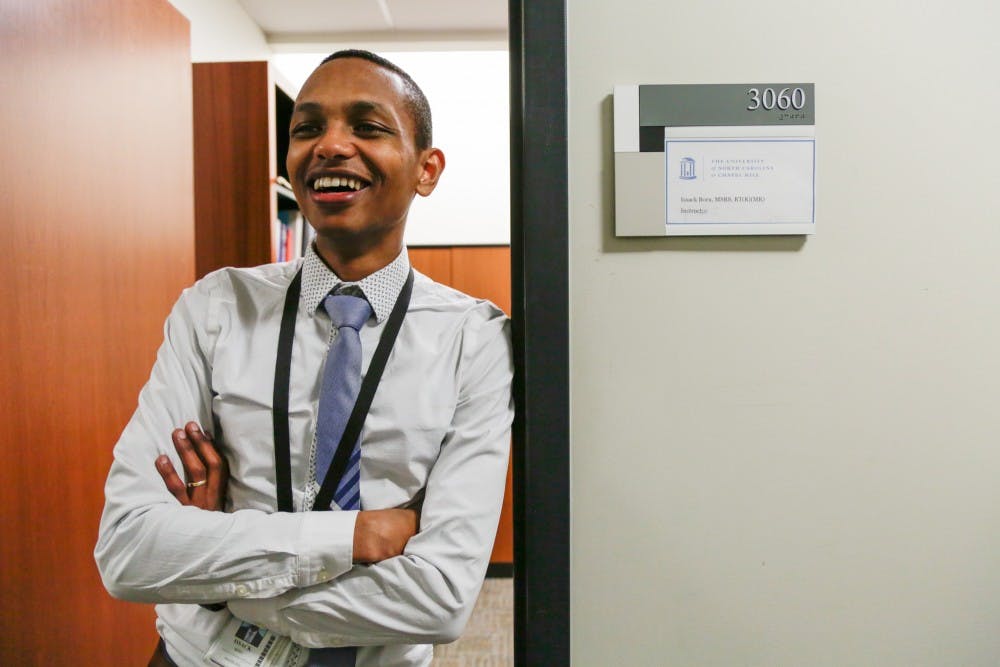CORRECTION: An earlier version of this article incorrectly identified Boru's position in the headline. He is a radiologic technologist. The story has been updated with his correct title. The Daily Tar Heel apologizes for this error.
When Issack Boru was 6 years old, his father suffered a head injury that caused internal bleeding. With a lack of medical imaging technology where they lived in Ethiopia, the diagnosis was delayed and his father was unable to receive proper treatment.
He passed away nearly 10 years later.
Boru now serves as the radiology imaging supervisor and clinical instructor for the UNC Health Care Department of Radiology at UNC and clinical instructor for the Division of Radiologic Science at UNC, specializing in MRI imaging.
“Growing up I’d seen him suffer from not only the symptoms, but the side effects of that delayed medical intervention. It was very hurtful for me,” Boru said. "I really didn't know my dad the way he is because that happened when I was 6. We went to hospitals a lot and, of course, you see the great care people give, and you see the not so great care that people give. That kind of put me into if I go into health care, I’ll do everything I can for people like my father, but also for people like me – family members that are directly or indirectly affected by his condition and situation, specifically medical imaging because that was the key factor for my dad.”
Boru moved to the United States when he was 17 years old, after his father’s death. He graduated from UNC in 2014 with a bachelor’s degree in radiologic science, the only program of its kind in the state.
“I tell people this,” Boru said. “I graduated Sunday and I started working on Tuesday because I just got hired at one of my clinical sites right after graduation.”
According to the World Health Organization, over half of the world lacks radiology services. Joy Renner, director of the Division of Radiologic Science, spoke about the division’s emphasis on global work.
“Here in the U.S., pretty much anybody thinks that within five miles, they could probably get radiology services, unless you live somewhere that doesn’t have electricity, you can have radiology,” Renner said. “But you go to other countries and that’s not true. They may or may not have access to begin with because there’s limited numbers of facilities available and trained staff. That’s why we’re trying to bridge the gap a little bit on the education piece and give support to countries that really want to offer extended and better services to their patients.”




